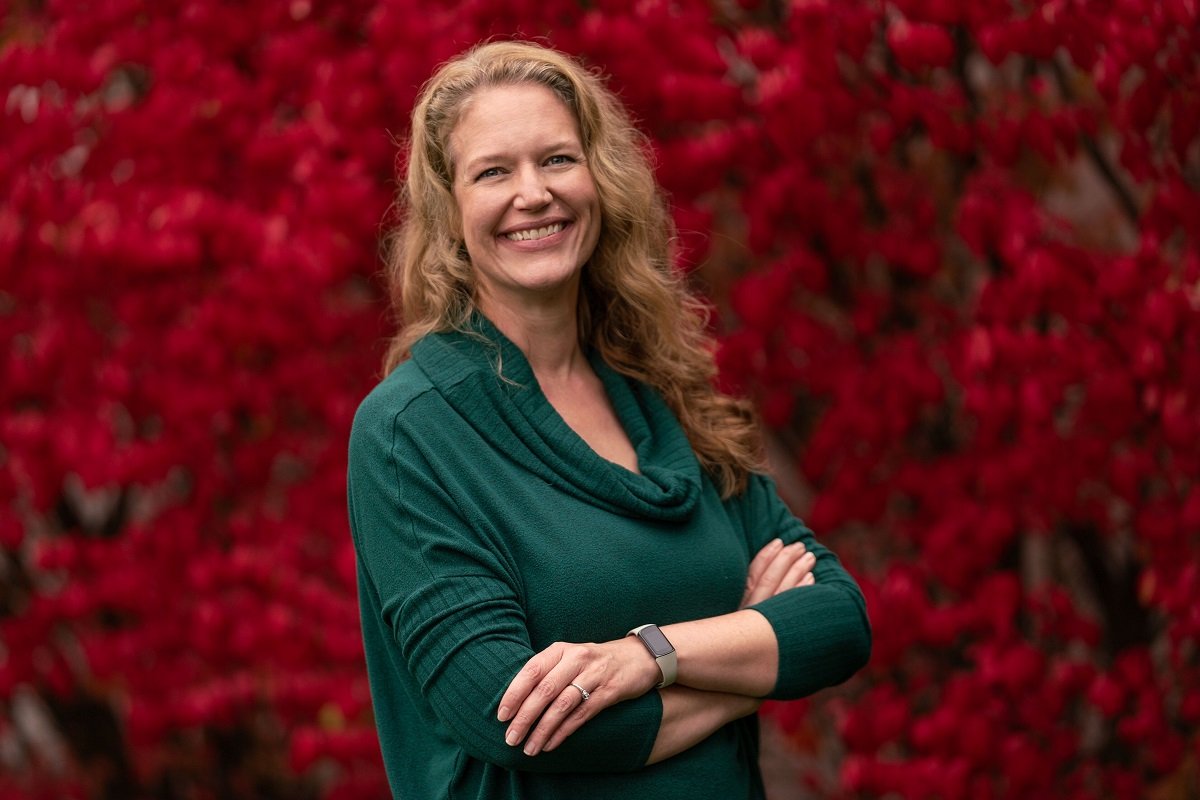UW Heath women’s pelvic wellness specialists help Monica get her life back
After the delivery of her first baby in 2014, Monica experienced life-altering physical complications. It would take seven years to find John Pennycuff, MD, MPH and the specialists at the UW Health Women’s Pelvic Wellness Clinic and to get her life back.
As a three-sport athlete in college and an avid hiker and snowshoer, Monica was used to being strong and fit. While she had a history of back pain, she recovered fairly quickly. Nothing prepared her for what she would experience when complications during childbirth caused significant tearing, vaginal prolapse and an umbilical hernia, along with pelvic floor dysfunction.
Her OB-GYN tried to repair some of the damage at the time, but Monica developed a major infection and she was advised to wait until after she had her second child to do anything more. She would end up enduring emotional and physical pain for much longer than that.
Her life was completely disrupted. She couldn’t walk for any real distance or stand for more than a couple of minutes because her body and pelvis were no longer working together. “I couldn't lift up my child without pain. And incontinence—that's fun…when you're in a professional career and you sneeze and have to go change your clothes or deal with being wet or wearing giant pads. I couldn't exercise. I couldn't play with my kids, and let's not even talk about the sexual pain and how challenging that was for my marriage,” shared Monica.
Monica lived in another state at the time and sought help from her general practitioner and OB-GYN, as well as several other specialists but found no relief. “Every time I’d be assessed for one symptom and while my OB had said to wait until after having my second kid, she said she really couldn’t do anything because nothing was bad enough by itself. But everything altogether annihilated my life,” said Monica.
Monica and her family moved to Madison, Wisconsin in 2017 and eventually decided enough was enough. “In 2020 I decided this is just not okay, and I'm going to try to get help again. I figured, I'm in a new state with new doctors and maybe now things have gotten bad enough because all these things are degenerative and they're just going to get worse,” she said.
She became a patient at UW Health, and a referral to the Women’s Pelvic Wellness Clinic changed her life. “In late 2021, I was interviewed by nurse practitioner Angela Sergeant, APP. She was the first person to treat me as more than just one symptom. If you go to a specialist for urinary incontinence, they do the basic tests around that, but they don't look at the whole picture and take it all into account. But Angie said, ‘You're complicated. There's a lot of stuff going on here. We have this doctor, Jon Pennycuff, and he is amazing.’”
Monica had finally found a path forward. “Somebody was actually listening and asking the right questions. Dr. Pennycuff treated me holistically and he worked with me on non-invasive treatment plans initially to see how my body would react. He was up to date on the latest research. He got creative and tried new things, and he made sure I was always empowered in the decision-making. We did a lot of trial and error and worked our way up to the more invasive treatments that culminated in surgery last summer,” she said.
While an earlier surgery to repair the umbilical hernia relieved some of the pain, resolving the pelvic floor dysfunction was more complicated. It would take a combination of multiple procedures during a four-hour surgery to put Monica’s organs back in place, a series of Botox injections in her pelvic floor to help her muscles to relax and heal and working intensively with pelvic floor physical therapist Elizabeth Bloom to develop strength and flexibility.
Today, Monica is now back to 90% of what she could do before she had children and the last 10% is within reach. “It was a lot, but my life is completely changed,” she said. “I'm still working on rebuilding my strength and flexibility, but I don't have the pain that I had before at all. I can exercise, intercourse doesn't hurt. I can play with my kids. I have to do it carefully, but I have so much more optimism for my life again.”
Monica wants to use her story to inspire others. “I want to do what I can to help to drive more funding to this and to also empower women. If my story inspires people to support and advocate for this care, that’s all I could hope for,” she said. “Women’s pelvic medicine needs great resources and philanthropy can make a huge difference in so many lives. Also, if my story empowers even one other woman to seek out this care and take back their lives, then it’s all worth it.”
Share Your Story
Did UW Health or the UW School of Medicine and Public Health have a life-changing impact on you or someone you love? Be part of the Wisconsin Medicine story by inspiring others with your story. Share it now.

